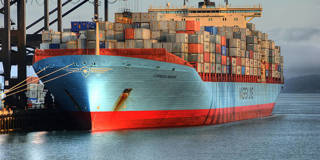The talks on the EU-US Transatlantic Trade and Investment Partnership have become so deeply mired in Europe's domestic controversies that the entire initiative could be scuttled. If it fails, Europe will face potentially devastating economic and strategic consequences.
STOCKHOLM/MADRID – When Pope Francis addressed the European Parliament last November, he compared the European Union to a grandmother – pleasant and rich with experience, but lacking the vitality and energy of the past. It is high time, Francis argued, that EU leaders shed their dozy image, recognize the strategic challenges that Europe faces, and forge a clear policy for tackling them.

STOCKHOLM/MADRID – When Pope Francis addressed the European Parliament last November, he compared the European Union to a grandmother – pleasant and rich with experience, but lacking the vitality and energy of the past. It is high time, Francis argued, that EU leaders shed their dozy image, recognize the strategic challenges that Europe faces, and forge a clear policy for tackling them.